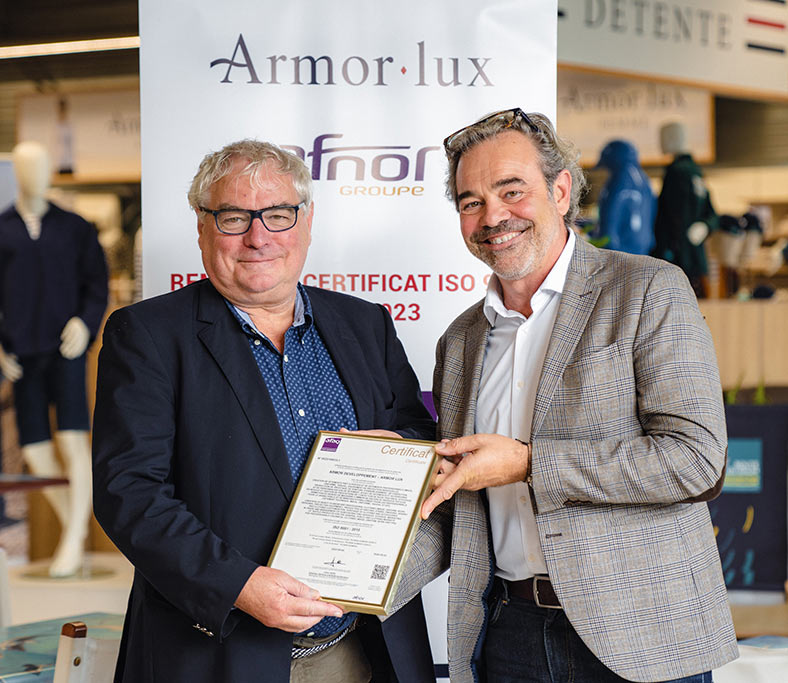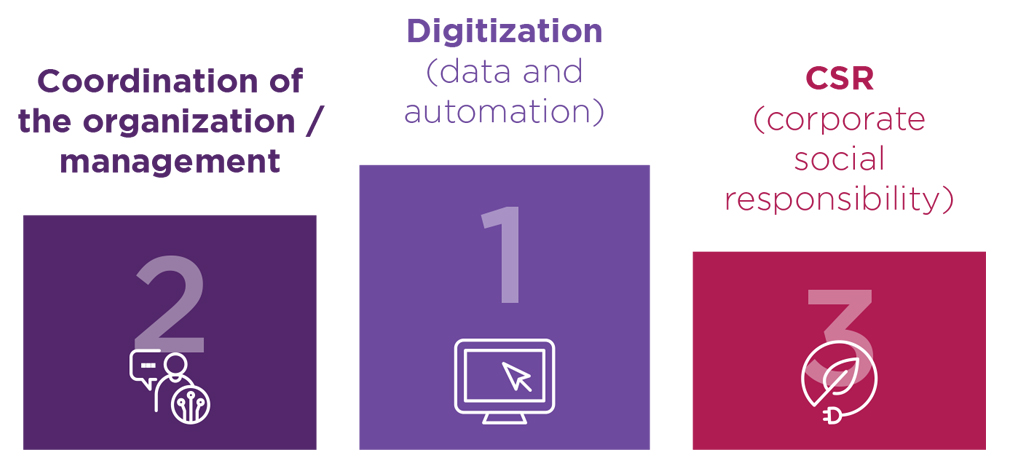ISO Survey: why France’s falling behind in quality is worrying

France, where’s your quality? According to the latest survey by the International Organization for Standardization (ISO, based on figures reported by various certification bodies around the world), French companies are as keen as ever to demonstrate that they make quality a priority. In fact, the number of active ISO 9001 certificates on December 31, 2022 will be close to previous years: 21,880 in total in France, exactly the same number as in 2020. On average, a certificate covers 2.8 sites, mainly metallurgical sites. ISO 9001 is a voluntary standard providing guidelines for the deployment of a quality management system (QMS).
On closer inspection, all is not rosy in France’s quality scene. Firstly, by restricting the sample to certifying bodies that have reported their figures for both 2022 and 2021, the number falls to 21,653 active certificates, or 1% less from one year to the next. This means that traditional certifiers are seeing their customer portfolios erode, while quality management is seen as continuous improvement, motivating companies to renew their certification every three years, without skipping a deadline.
6,000 new ISO 9001 certificates in Germany
Secondly, because worldwide, the number of ISO 9001-certified companies is neither stagnating nor falling slightly, but has risen by a net 12%. 1,265,216 ISO 9001 certificates were active worldwide at December 31, 2022. Just under half of them are in China: 551,000, a figure that should be reduced to 531,000 on a constant sample basis. But that’s still 27% more than on December 31, 2021, with the particularity that, roughly speaking, a Chinese certificate is valid for a single site, not several. Beijing’s new ISO 10010 quality culture standard, due to come into force in August 2022, is no innocent gesture. Countries that are acculturated to ISO 9001-style quality management, such as Italy, Spain and the UK, are also experiencing stagnation, but don’t the 6,000 new certificates won by Germany (with a stable sample) prompt us to speak of a French complex? France, 10th in the ISO 9001 ranking, on a par with Brazil…

Lastly, ISO 9001 has also seen a decline in the number of certificates based on other management standards: there has been a marked increase in ISO 27001 (information security), ISO 45001 (occupational health and safety), ISO 50001 (energy management) and ISO 13485 (medical devices). Even more tried-and-tested standards such as ISO 14001 (environmental management) and ISO 22000 (food safety) are not so lacklustre. However, standards such as ISO 27001 and ISO 45001 are recent and therefore benefit from the novelty effect: +45% for ISO 45001 in France and +29% worldwide, for example. ” In France, the regulatory context has facilitated the emergence of ISO 27001 by imposing or recommending its application for certain key players and their IT service providers: HDS decree, RGPD, law on electronic invoicing, NIS2, etc. The thousandth certificate has already been issued in France in 2023. “Brice Gilbert, an expert on the subject at AFNOR Certification, notes, without losing sight of the fact that countries like Japan have not just 927 active ISO 27001 certificates, but 7,000.
ISO 9001: revising the 2015 version to breathe new life into the system?
So how do we analyze France’s failure to meet quality standards? There’s no denying that the standard has run out of steam in its 2015 version, a version developed eight years ago. The latest attempts to update it date back to 2021 and failed, although a new impetus is currently emerging, as AFNOR will explain on October 9. In France, there is also the issue of the coexistence of the ISO 9001 “brand” with sector-specific quality standards, such as EN 9100 in aeronautics, ISO 19443 in the nuclear sector and IATF 16949 in the automotive sector, even if equivalences exist with the generic standard. Vincent Blache, an expert on the subject for the AFNOR group, points to a cultural limitation: ” In France, quality still rhymes a lot with products and technology, little with organization “, he asserts. With this observation about a France of quality split in two: “We’re not just talking about quality, we’re talking about quality. On the one hand, companies that want a modern, comprehensive ISO 9001, open to other concepts such as cybersecurity or CSR ; on the other, companies that want to operate the old-fashioned way, without leaving the factory. ”
For both the timid and the daring, we highly recommend downloading the AFNOR study “La qualité dans le monde: mouvements et paradoxes” (Quality in the world: movements and paradoxes). ” While the notion of quality differs from country to country, tomorrow’s quality is likely to use different levers, each of which will enable consumers-customers to make their own choices as to what, for them, defines the quality of a product or service “, concludes Vincent Blache.
Top 3 issues impacting quality over the next five years
